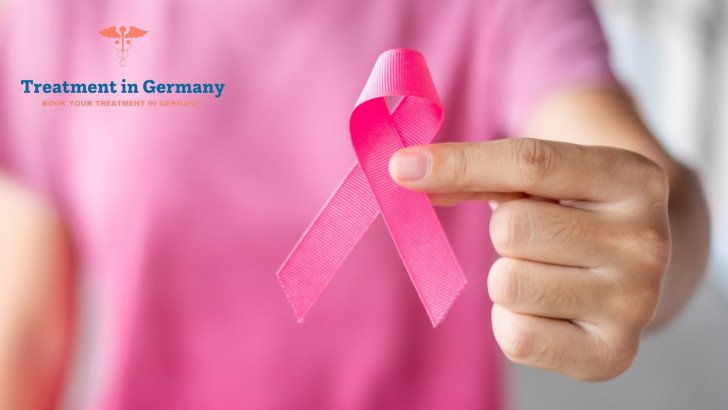
As global leaders in oncology research and treatment, German hospitals combine cutting-edge technologies with comprehensive patient care.
Personalized cancer vaccines are revolutionizing breast cancer care, offering tailored immunotherapy solutions that enhance the immune system’s ability to target breast cancer cells. Germany, a global leader in advanced oncology, is pioneering these therapeutic innovations, providing hope for breast cancer patients with aggressive subtypes like triple-negative breast cancer (TNBC) and HER2-positive breast cancer. Drawing from your interest in personalized vaccines for cancers like colorectal cancer.
Personalized cancer vaccines are a cutting-edge form of immunotherapy designed to target patient-specific tumor antigens, such as neoantigens arising from mutations in cancer cells. Unlike traditional vaccines, these therapeutic vaccines treat existing breast cancer by stimulating T cells to recognize and destroy cancer cells. By leveraging mRNA technology or dendritic cell platforms, vaccines like BioNTech’s Autogene Cevumeran encode neoantigens to trigger robust immune activation. German oncology centers lead in developing and testing these vaccines in clinical trials, focusing on breast cancer to enhance survival rates and prevent recurrence.
Recognizing breast cancer symptoms is crucial for identifying candidates for personalized cancer vaccines. Common symptoms include:
These symptoms, especially in aggressive subtypes like TNBC, signal the need for diagnostic accuracy. German specialists use advanced tools to confirm eligibility for personalized immunotherapy, ensuring timely intervention.
Precision Diagnostic Accuracy for Personalized Cancer Vaccines
Diagnostic accuracy is critical to identify tumor antigens and tailor personalized cancer vaccines for breast cancer. Germany’s oncology centers employ state-of-the-art diagnostic tools:
German oncologists and geneticists ensure rapid, precise diagnostics, enabling personalized immunotherapy within weeks of diagnosis.
How Personalized Cancer Vaccines Are Changing Breast Cancer Care
Germany’s advanced oncology ecosystem is leveraging personalized cancer vaccines to transform breast cancer treatment, particularly for TNBC, HER2-positive breast cancer, and metastatic cases.
Mechanism of Personalized Cancer Vaccines
Personalized cancer vaccines stimulate immune activation through targeted mechanisms:
German immunologists optimize antigen presentation, enhancing anti-tumor efficacy.
Clinical Outcomes in Breast Cancer
Recent clinical trials demonstrate the impact of personalized cancer vaccines on breast cancer care:
These clinical outcomes highlight personalized cancer vaccines as a game-changer for breast cancer patients.
Integration with Combination Therapies
Personalized cancer vaccines are combined with other treatments to maximize patient outcomes:
German oncology centers integrate these strategies to optimize therapeutic innovations.
Role of Clinical Trials
Germany’s leadership in clinical trials drives therapeutic advancements:
German centers lead global research, expanding personalized immunotherapy applications.
Why Germany Leads in Personalized Cancer Vaccines
Germany offers distinct advantages for breast cancer patients seeking personalized cancer vaccines:
Risk Factors and Prevention Strategies for Breast Cancer
Preventing breast cancer recurrence supports personalized cancer vaccines. Key risk factors include:
German specialists recommend regular screenings (mammography, MRI), healthy diets, and exercise to reduce disease risk.
Comprehensive Multidisciplinary Breast Cancer Care
Germany’s multidisciplinary breast cancer care integrates personalized cancer vaccines with:
This holistic approach optimizes patient outcomes.
Post-Treatment Support and Enhancing Quality of Life
After personalized cancer vaccines, German oncology centers provide robust follow-up:
Germany ensures sustained recovery for breast cancer patients.
Challenges and Future Directions
Personalized cancer vaccines face challenges, including tumor immunosuppression and neoantigen selection complexity. German researchers address these through:
Future therapeutic innovations, such as universal mRNA vaccines, promise to advance breast cancer care.
Conclusion
Personalized cancer vaccines are transforming breast cancer care in Germany, offering tailored immunotherapy for TNBC, HER2-positive breast cancer, and metastatic cases. Through clinical outcomes, multidisciplinary care, and holistic support, German oncology centers achieve robust immune activation, improved survival rates, and enhanced quality of life. Supported by world-class specialists and cutting-edge technology, Germany leads in advanced oncology, providing hope to breast cancer patients worldwide.
Frequently Asked Questions
How do personalized cancer vaccines transform breast cancer care?
They target neoantigens to enhance immune activation, offered at German oncology centers.
What breast cancer symptoms do personalized vaccines address?
Symptoms like breast lump, pain, fatigue, and skin changes.
How is eligibility for personalized cancer vaccines determined?
Via tumor sequencing, MRI, biopsies, and blood tests for diagnostic accuracy.
Are clinical trials for personalized cancer vaccines available in Germany?
Yes, exploring mRNA vaccines for TNBC and HER2-positive breast cancer.
Is follow-up care provided after personalized cancer vaccines?
Yes, including monitoring, rehabilitation, and emotional wellness support.
How does Germany compare to the UK/US for breast cancer vaccines?
Germany excels in therapeutic innovations, rapid access, and holistic care.
Can personalized cancer vaccines prevent breast cancer recurrence?
They induce immunological memory to delay recurrence, per clinical trials.
Does Germany support international breast cancer patients?
Hospitals in Germany offer language assistance, travel coordination, and emotional wellness programs.
What are the latest advancements in personalized cancer vaccines?
AI-driven antigen selection, nanoparticle delivery, and combination therapies.
How do personalized cancer vaccines differ from traditional treatments?
They use personalized immunotherapy to target tumor antigens, unlike chemotherapy.
For more information or a free consultation, visit our contact us page.
Kindly complete the form below, and our dedicated team will reach out to you promptly. We look forward to connecting with you soon!
Trierer Straße, 56072 Koblenz, Germany

.webp)
 (1).webp)

.webp)
 (1).webp)


.webp)
 (1).webp)

.webp)
 (1).webp)
